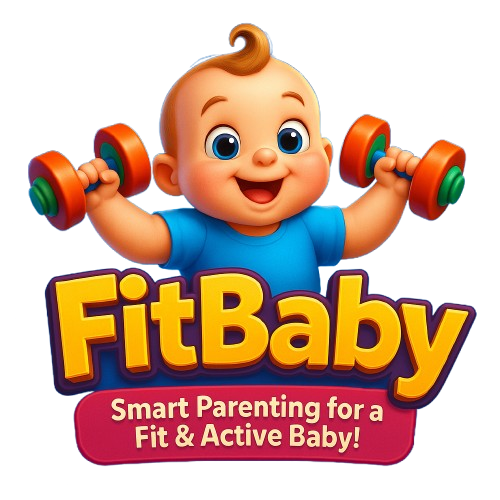Table of Contents
Introduction: What is a Baby Bond?
When it comes to raising a healthy, happy, and emotionally secure child, nothing is more powerful than a baby bond. This special connection between a parent and their newborn forms the emotional foundation of a child’s development. A strong baby bond not only nurtures the child’s psychological and physical well-being but also enhances the parent-child relationship in meaningful ways.

In this blog post, we’ll explore the science and heart behind baby bonding, the incredible benefits of kangaroo care, and practical tips for strengthening your bond with your little one—every single day.
Why Is Baby Bonding Important?
Creating a baby bond isn’t just about warm, fuzzy feelings—it’s essential for your baby’s growth and development. From the moment you carry your newborn, they start recognizing your heartbeat, scent, and voice. This familiarity provides a sense of security and comfort that helps your baby transition from the womb into the outside world.

Medical professionals and psychologists agree: early bonding contributes to emotional stability, social development, and even brain growth in infants. The earlier and more consistently you bond with your baby, the more confident and self-assured they’ll become later in life.
What Is Kangaroo Care and How Does It Help?
Kangaroo care, also known as skin-to-skin contact, is one of the most effective ways to build a strong baby bond. This method involves placing your baby (wearing only a diaper) directly against your bare chest. Much like a mother kangaroo carrying her joey in her pouch, this practice promotes warmth, closeness, and emotional connection.

Benefits of Kangaroo Care:
- Regulates baby’s temperature, breathing, and heartbeat
- Promotes weight gain and stronger immunity
- Encourages better sleep patterns
- Enhances motor skill development
- Reduces crying and fussiness
- Boosts milk production in breastfeeding mothers
- Strengthens the baby-parent emotional bond
Neonatal intensive care units (NICUs) around the world use kangaroo care for premature babies because of its scientifically proven benefits. But even healthy newborns can greatly benefit from this daily bonding ritual.
How to Practice Kangaroo Care at Home
Creating a cozy environment for kangaroo care doesn’t require special equipment or tools. Follow these simple steps to maximize the benefits of your bonding time:

- Choose a Calm Setting: Set your air conditioner to a comfortable temperature. Dim the lights to create a soothing atmosphere.
- Dress Comfortably: Wear a shirt that opens in the front or use a wrap specifically designed for kangaroo care.
- Support Your Back and Arms: Use pillows to stay comfortable and prevent rolling over if you doze off.
- Start Small: Begin with 30-minute sessions and gradually increase the duration based on your and your baby’s comfort.
- Stay Safe: Ask your partner or a family member to check in on you occasionally, especially if you feel sleepy.
The Role of Fathers in Baby Bonding
Fathers play an equally important role in forming a baby bond. While mothers naturally begin bonding during pregnancy, fathers often connect more deeply after birth through hands-on interactions. Kangaroo care allows dads to be physically and emotionally involved, building their confidence and nurturing paternal instincts.

Encourage your partner to participate in skin-to-skin sessions. It’s a beautiful way for fathers to build their own special connection with the baby while also supporting your bonding journey.
How Baby Bonding Helps Parents Too
While baby bonding is incredibly beneficial for the child, it also helps parents—especially new mothers—cope with the emotional ups and downs of parenthood. Holding your baby close can:
- Reduce stress and anxiety
- Release oxytocin, the “love hormone”
- Improve maternal self-esteem
- Promote emotional healing after childbirth
- Create a sense of peace and purpose
When you take time to connect with your baby, you’re also giving yourself permission to slow down and be present in the moment.
When and How Often to Practice Baby Bonding
You don’t have to wait for the perfect moment to bond with your baby. The key is consistency. Even short sessions of 30 minutes a day can make a big difference. Incorporate bonding into daily routines like:
- Feeding times
- Bath time
- Bedtime rituals
- Naps on your chest
- Gentle baby massage
The more intentional you are with your baby bond, the stronger and more secure your child will feel.
Long-Term Impact of a Strong Baby Bond
A secure baby bond doesn’t just benefit your newborn now—it lays the foundation for your child’s future. Babies who are securely attached tend to:
- Develop better relationships
- Handle stress more effectively
- Show increased academic and emotional intelligence
- Have fewer behavioral issues
In short, bonding helps raise happier, healthier, and more resilient kids.

Final Thoughts: Cherish the Moments
There’s truly nothing like the first few months of your baby’s life. While they might not remember the cuddles, kisses, and skin-to-skin hugs, the effects of those early bonding moments will stay with them forever. And you’ll remember the joy, the closeness, and the overwhelming love that came with building that perfect baby bond.

Don’t rush through these precious days. Take time to bond, breathe, and be present with your baby. The reward? A confident, connected child who knows they are deeply loved.
Read more on Baby Cold: Causes, Symptoms, and Best 6 Remedies for Fast Relief
Frequently Asked Questions (FAQs)
Q: What is the best way to form a baby bond?
A: The best way to form a baby bond is through consistent, loving interactions such as kangaroo care, eye contact, gentle touch, and talking to your baby.
Q: Can fathers form a strong baby bond too?
A: Absolutely! Fathers can form a powerful baby bond through skin-to-skin contact, cuddling, and participating in daily baby care routines.
Q: How often should I practice kangaroo care?
A: Daily sessions of 30 minutes or more are recommended, especially during the first few months of life.
